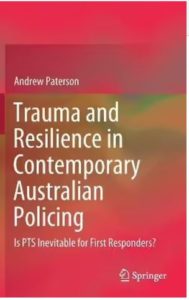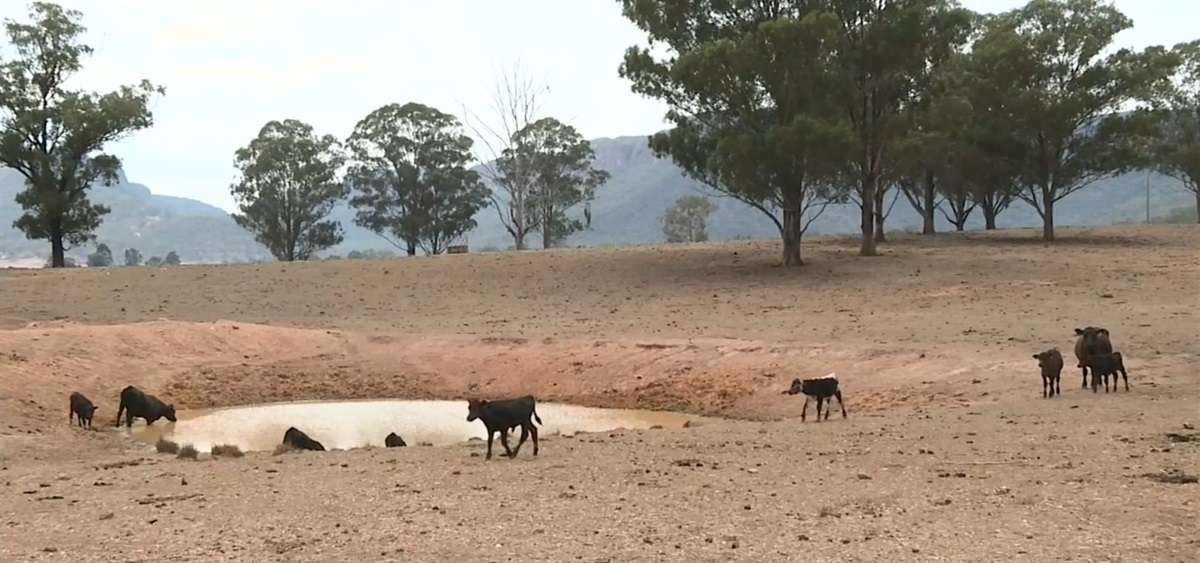
A new book asks whether Post-Traumatic Stress is inevitable for first responders – and, if so, why is it often left to individuals to manage their own condition?
 Trauma and Resilience in Contemporary Australian Policing (SpringerLink) has been written by Flinders University academic Dr Andrew Paterson, whose first-hand experience as a social worker since 1974 and working directly with SA police officers has highlighted the difficulties facing first responders trying to deal with ongoing trauma situations.
Trauma and Resilience in Contemporary Australian Policing (SpringerLink) has been written by Flinders University academic Dr Andrew Paterson, whose first-hand experience as a social worker since 1974 and working directly with SA police officers has highlighted the difficulties facing first responders trying to deal with ongoing trauma situations.
Dr Paterson undertook a series of interviews as the basis of his research at Flinders University into “Resilience among police in SA”, and he hopes the resulting book will help improve the resilience of first responders who continue to regularly deal with trauma in their workplace.
“I grabbed the opportunity to research resilience rather than the negative impact of trauma,” says Dr Paterson, who also lectures at the Flinders College of Business, Government and Law.
 The book features the personal accounts of 50 police officers in South Australia, relating how they cope with traumatic experiences. These interviews were conducted with the support of the Police Association of SA.
The book features the personal accounts of 50 police officers in South Australia, relating how they cope with traumatic experiences. These interviews were conducted with the support of the Police Association of SA.
It examines how these officers say they strive to keep themselves well and “bounce back” from duty-related traumatic experience in the absence of practical, accessible and timely organisational support.
The book makes for disturbing reading, in parts, highlighting that an absence of an organisational strategy to effectively respond to traumatic experiences has damaging consequences for individuals.
It investigates mechanisms that police officers presently use to “normalise” their duty-related traumatic experiences to preserve the delicate professional balance between “coping” and “psychic numbing”.
“They do this to avoid the much-publicised perils of a PTSD diagnosis, while being appropriately responsive to colleagues, victims and survivors in their daily work environment,” says Dr Paterson.
Many police officers said they resorted to ad-hoc methods as a means of trying to patch themselves together, but they understood that these efforts did not provide long-term help.
This included the use of alcohol (although less frequently among younger police officers) and, to a much lesser extent, prescription drugs. It also involved some talking effusively with their partners at home about their stress and work situations, while others reverted to absolute silence to reflect on their personal situations.
“Police officers are still afraid of identifying that they have issues with stress, due to the para-military nature of their roles,” says Dr Paterson.
Importantly, Dr Paterson provides recommendations in the book. Through revealing how police officers manage their own reactions to trauma – outside of the expectations of mental health professionals, union representatives and police leadership – Dr Paterson highlights many innovative approaches and recommendations that can support first responders in moving from assumptions of post-traumatic stress and through post-traumatic growth.
The book (DOI: 10.1007/978-981-16-4416-0) considers recent advances in post-traumatic growth and resilience theory and reinterprets exposure in a positive context, as well as preventative experiences in Australia and internationally.






